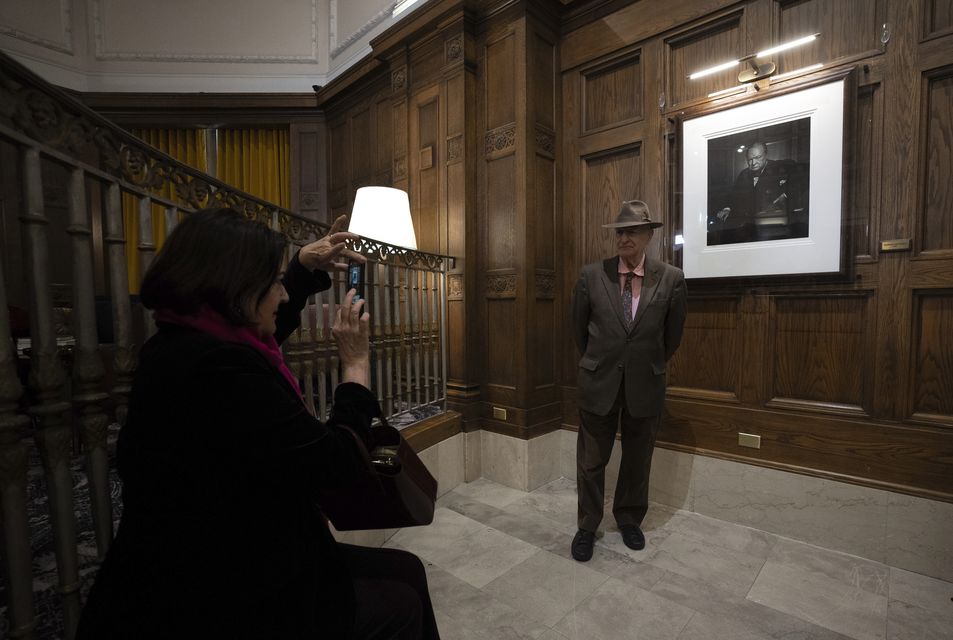A stolen portrait of Sir Winston Churchill that was swapped with a forgery during the pandemic has returned to its rightful place, after two Canadian police detectives travelled to Rome to retrieve it.
Police said The Roaring Lion was stolen from the Fairmont Chateau Laurier hotel in Ottawa sometime between Christmas Day 2021 and January 6 2022 and replaced with a forgery.
The swap was only uncovered months later, in August, when a hotel worker noticed the frame was not hung properly and looked different to the others.
Guests invited to an unveiling ceremony take their photo in front of The Roaring Lion at the Fairmont Chateau Laurier hotel in Ottawa, Ontario (Adrian Wyld/The Canadian Press via AP)
Genevieve Dumas, the hotel’s general manager, unveiled the portrait in a ceremony on Friday.
“I can tell you that it is armed, locked, secured,” Ms Dumas said.
“It’s not moving,” she said, adding that staff accidentally triggered the alarm on Thursday, while they hung it up, “and I’m sure they heard it on Parliament Hill”.
The most famous depiction of Sir Winston, known as The Roaring Lion, appears on the UK’s £5 banknote and shows a glowering wartime prime minister staring into the camera.
Renowned photographer Yousuf Karsh snapped the famous portrait in 1941 in the speaker’s office just after Sir Winston delivered a rousing wartime address to Canadian legislators.
Towards the end of his life, Karsh signed and gifted the portrait to the hotel, where he had lived and worked.
The portrait had been sold through an auction house in London to a private buyer, and both seller and buyer were unaware that it had been stolen, police said.
Police have now charged a man from the town of Powassan, Ontario, with forgery, theft and trafficking.
That case is before the courts.
The portrait’s return was a widely anticipated event, with a ceremony held in a room packed with attendees including Ottawa’s mayor.
Nicola Cassinelli, a lawyer in Genoa who bought the stolen artwork, sent a message.
He said: “The magnificent photograph by Yousuf Karsh captures in the eyes of Sir Winston Churchill the pride, the anger and the strength of the free world. And it represents, better than any other, the desire for the triumph of good over evil.”
And despite the “extraordinary privilege” of having the portrait hang in his home, The Roaring Lion, Mr Cassinelli said, belongs to the public.
